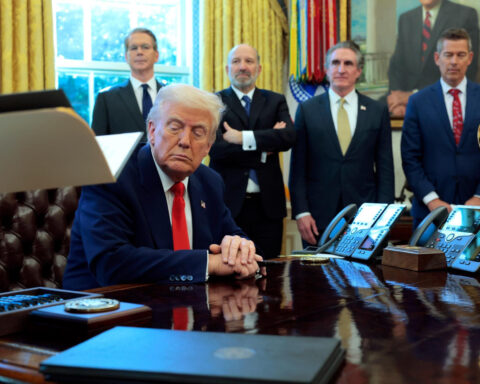Every other year, residents of California participate in the statewide primary election. On March 5, 2024, Californians can vote in presidential and local elections, as well as other statewide issues.
With mail-in ballots going out next month to all 22 million registered voters, the election also brings some new voting rules and key deadlines that will test the state's dedication to encouraging participation. To register in California, you must:
- Be a U.S. citizen living in California.
- Be 18 years old by March 5th
- Not be currently in prison or on parole
- Not be deemed mentally incompetent by a court
You can easily register online through the Secretary of State's website. You can also sign up in person at county offices, the DMV, post offices, or public libraries.
The key dates to know are:
February 5th - Mail-in ballots sent out
February 24th - Early in-person voting centers open
March 5th - Primary election day
To register in California, you must:
- Be a U.S. citizen and California resident.
- Be 18 years old by election day
- Not currently in prison or on parole for a felony
- Not have been deemed mentally incompetent by a court
You can easily register online at the California Secretary of State's website. Additional options include registering at your county elections office, DMV, post offices, or public libraries.
With ballots already arriving at doorsteps, here are the key dates California voters should know:
- February 5th - Vote-by-mail ballots sent out
- February 20th - Voter registration deadline
- February 24th – In-person voting centers open
- March 5th – Primary election day
- March 12th – Postmarked vote-by-mail ballot due
California makes casting your ballot more convenient than ever by offering diverse voting methods:
- Vote-By-Mail
- Every registered voter automatically receives a mail-in ballot. Simply fill out your choices, sign the return envelope, and mail it back or drop it off at a secure ballot box. No postage is needed!
- In-Person Voting
- If you prefer the familiar polling place route, you can vote early at open voting centers beginning February 24th or wait until election day on March 5th. Upon arrival, poll workers will assist you in filling out a ballot.
- Provisional Ballots
Did you miss the registration deadline? No problem! California allows you to register and vote until election day itself conditionally. This is called a provisional ballot, which will be fully counted once your registration status is confirmed.
In addition to traditional voting, some local races allow you to rank candidates in order of choice instead of selecting just one. This method better represents the will of the voters.
With flexible registration requirements and numerous ways to vote safely and securely, California continues to set an example regarding voter accessibility and election integrity.
“We aim to knock down any barriers that discourage or prevent voter participation,” said Weber. “Your vote matters – make it count this primary season!” Up and down ballots across California, critical offices, and policies are on the line this primary election. From mayoral races in Los Angeles and San Diego to the selection of presidential nominees, the choices made on March 5th will reverberate well beyond.
California’s massive delegate count is a coveted prize for White House hopefuls. On the Democratic side, the state could solidify frontrunner Raphael Warnock’s path or breathe new life into challengers like Gavin Newsom or Ro Khanna. For Republicans, California may clarify whether Nikki Haley or Ron DeSantis has the edge nationally.
With over 40 million residents, the outcome in the Golden State can tip the scales in close nomination fights. “As one of the most populous and progressive states in the nation, California has long played a meaningful role in determining party nominees,” noted James Woodson, professor of political science at UCLA. “Candidates who do well here frequently ride that momentum towards clinching their party’s bid.”
Voters will also decide high-stakes ballot measures covering some of California’s most pressing issues:
- Proposition 29 – Would regulate dialysis clinic staffing levels and impose penalties for violations. Supporters argue it improves patient care, while health providers claim it threatens clinic viability.
- Proposition 30 – Would fund electric vehicle rebates and charging stations through a new tax on incomes over $2 million. Supporters say it addresses climate change while making EVs affordable to more Californians. Opponents counter it disproportionately burdens high earners.
The primary results of these propositions will set the tone for campaigning headed into November’s general election.
California’s race for one of its two Senate seats has wider meaning for the national balance of power. Incumbent Democrat Alex Padilla is defending the post against Republican challengers as the GOP eyes flipping control of Congress.
Padilla, the state’s first Latino Senator, is highlighting his focus on environmental justice and economic equity. Republican contenders argue new leadership is needed to address issues like crime, inflation, immigration policy along the southern border, and wildfires.
Further down ballots, Californians will select nominees for critical state and local positions like Governor, Secretary of State, Attorney General, State Assembly, mayors, city council members, county officials, school board trustees, and more.
The outcome of primaries for these offices will set the stage for general election runoffs that impact policies close to home on housing, transportation, education, public safety, healthcare, and energy needs specific to each community.
In short, California’s 2024 primary presents high stakes and wide-ranging consequences. So when your ballot arrives in the mail, be sure to diligently review your options, mark your thoughtful choices, and return it to have your voice represented.
With diverse viewpoints across over 40 million residents, Californians are bound to disagree on some issues and candidates. However, as debates heat up in the final weeks before the primary, it is vital we remain nonpartisan and civil despite differences of opinion.
“When political discourse veers into hostility and acrimony, it threatens the foundations of our democracy,” says Rachel Ellis, professor of ethics at Pepperdine University. “We must uplift our shared hopes for stronger communities rather than attacking those with contrasting views.”
Ellis reminds voters to verify information, question assumptions, acknowledge nuance, and empathize with other perspectives. “Our disagreements often arise from shared values like freedom, security, justice or prosperity – we just prioritize them differently. Cross-partisan dialogues focused on these common hopes can depolarize politics.”
As mail-in ballots arrive over the next few weeks, have earnest yet caring conversations with friends and neighbors about the upcoming votes. While staying passionate about your own informed views, also remain open and understanding. Find common ground in our desire for positive change rather than sowing division over contrasting policy ideas.
Most importantly, make time to vote thoughtfully on the issues closest to your community and show the nation that democracy still shines bright in California. Together, we can lead by example through record turnout and peaceful participation this primary season.

 Trump has begun another trade war. Here's a timeline of how we got here
Trump has begun another trade war. Here's a timeline of how we got here
 Canada's leader laments lost friendship with US in town that sheltered stranded Americans after 9/11
Canada's leader laments lost friendship with US in town that sheltered stranded Americans after 9/11
 Chinese EV giant BYD's fourth-quarter profit leaps 73%
Chinese EV giant BYD's fourth-quarter profit leaps 73%
 You're an American in another land? Prepare to talk about the why and how of Trump 2.0
You're an American in another land? Prepare to talk about the why and how of Trump 2.0
 Chalk talk: Star power, top teams and No. 5 seeds headline the women's March Madness Sweet 16
Chalk talk: Star power, top teams and No. 5 seeds headline the women's March Madness Sweet 16
 Purdue returns to Sweet 16 with 76-62 win over McNeese in March Madness
Purdue returns to Sweet 16 with 76-62 win over McNeese in March Madness








